Tesla Shares Top $1,000
Abstract:Tesla (TSLA) is the brainchild of entrepreneur Elon Musk. The company made waves by challenging the auto industry and producing its own all-electric car.
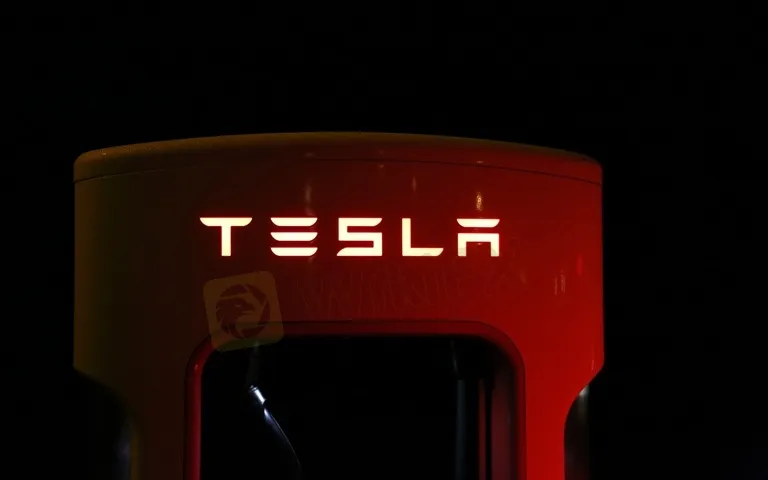
Tesla (TSLA) is the brainchild of entrepreneur Elon Musk. The company made waves by challenging the auto industry and producing its own all-electric car.
Tesla shares managed to top the $1,000 level yesterday, gaining as much as 7.5% at the close after founder and Tesla CEO Elon Musk said he had sold “enough stock” to reach his plan to sell 10% of his shares in the world's most valuable car company, according to an interview released on Tuesday. Musk said he sold the shares because he needed to exercise stock options that are expiring next year “no matter what.” His announcement came after weeks of the billionaire selling shares consistently, after he agreed to sell 10% of his stake in the electric vehicle manufacturer that he founded.
According to SEC filings Musk has sold roughly 13.5 million shares since posting a survey on Twitter asking his followers if he should sell 10% of his shares in Tesla. The answer was “yes” and since then Musk has been making multiple weekly sales of shares, as well as exercising millions of options shares. It‘s been reported that Musk would be facing a tax bill of around $15 billion, and that could be at least part of the reason he has taken to selling Tesla shares. Musk has also said he doesn’t take a Tesla salary, and therefore must sell stock in order to pay taxes.
Interestingly, while Musk has sold 13.5 million shares, he‘s added roughly 16.4 million shares over the same time frame through exercising options, thus increasing his stake in Tesla. Tesla shares closed the session at $1,008.87, finally topping the $1,000 level that’s been resistive lately. Shares are also up more than 42% since the start of the year. Over the past three years Tesla has gained over 1,100%. Musk is the world‘s richest individual, with a net worth of nearly $250 billion, but in the interview he stressed that most of his wealth is tied up in stock. “It’s not like Ive got some sort of massive cash balance,” he said. Shares are down from a November high of $1243.49 a share. Elon Musk's net worth has surpassed $300 billion, making him the first person on the planet to reach that milestone. It also means the Tesla chief executive is worth tens of billions more than the second-richest person on earth, Amazon.com founder Jeff Bezos.
Read more
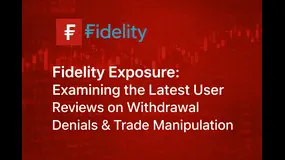
Fidelity Exposure: Examining the Latest User Reviews on Withdrawal Denials & Trade Manipulation
Fidelity Investments has been grabbing attention of late for negative reasons. These include complaints concerning withdrawals, account closure without notice, technical glitches in trade order processing, and inept customer support service. As the complaints continue to grow, we prepared a Fidelity review article showcasing some of them. Read on as we share details.
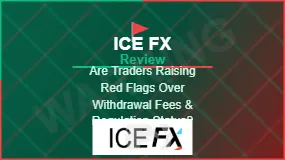
ICE FX Review: Are Traders Raising Red Flags Over Withdrawal Fees & Regulation Status?
Does ICE FX ask you to pay taxes for fund withdrawal access? Were you made to pay a hefty fee on a verification failure? Does the broker deliberately cancel your profitable trades? Have you failed to receive assistance from the ICE FX customer support team on your fund deposit and withdrawal queries? These issues have become common for its traders. Many of them have highlighted these issues online. In this ICE FX review article, we have investigated some of their complaints. Read on as we dive deep.
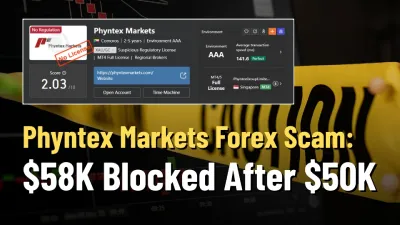
Phyntex Markets Forex Scam: $58K Blocked After $50K
Phyntex Markets forex scam: $50K withdrawal approved, $58K blocked on “toxic trading.” Unregulated Comoros broker scams Malaysian traders. Read exposure & protect funds!
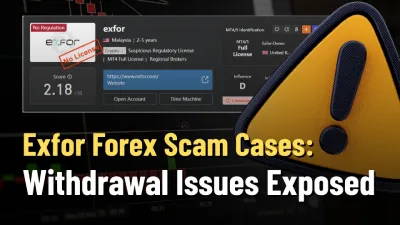
Exfor Forex Scam Cases: Withdrawal Issues Exposed
Exfor clients face blocked withdrawals and no support response. Scam cases exposed—protect your funds and avoid this unregulated forex broker.
WikiFX Broker
Latest News
FxPro Broker Analysis Report
ACY SECURITIES Regulatory Status: A Complete Guide to Licenses, Warnings and Trader Issues
FBS Forex Scam Alert: High Complaint Ratio
ThinkMarkets Scam Alert: 83/93 Negative Cases Exposed
Exchange Rate Fluctuations: Key Facts Every Forex Trader Should Know
ACY Securities Deposit and Withdrawal: The Complete 2025 Guide (Fees, Methods & User Warnings)
US Industrial Production Surged In January
TradingPro: Regulation, Licences and WikiScore Analysis
Weltrade Review: Safety, Regulation & Forex Trading Details
Pepperstone Analysis Report
Rate Calc

